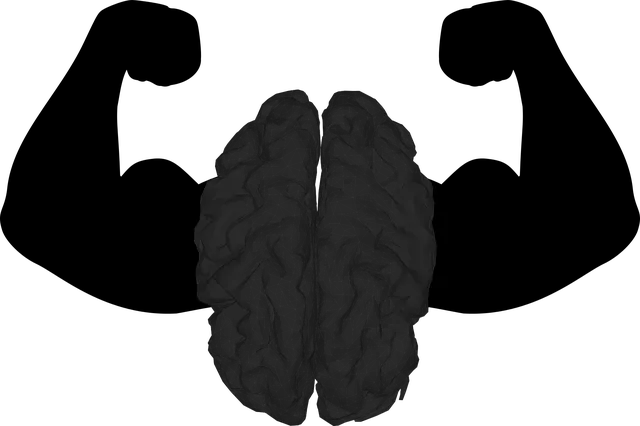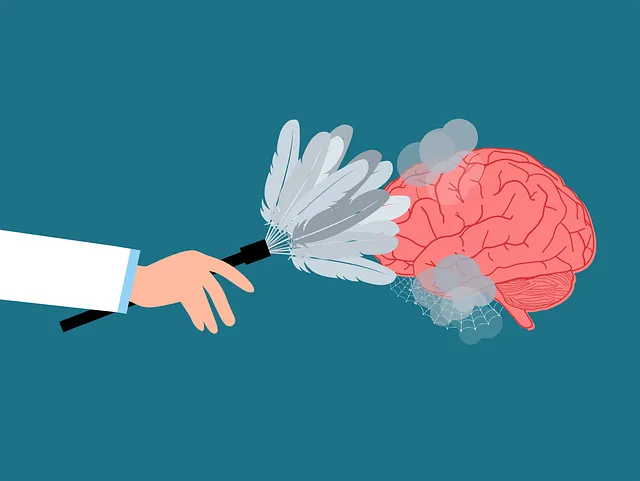Kaiser Permanente's training programs in Englewood focus on building Resilience, Recovery, and Mental Health (RFM) through exercises targeting Emotional Healing, Social Skills, and Self-Esteem. Designed for mental health professionals, these initiatives enhance well-being, stress mitigation, and prevent burnout. Key components include risk assessment, self-awareness practices, positive thinking techniques, and policy analysis. Success is measured by improved emotional well-being, problem-solving skills, and personal control, with qualitative feedback and quantitative metrics ensuring positive outcomes for Kaiser Permanente training in Englewood.
In today’s fast-paced and often stressful world, building resilience is crucial for personal and organizational well-being. This article explores the power of RFM (Resilience, Flexibility, and Mobility) exercises in fostering adaptability. We examine Kaiser Permanente’s innovative training programs in Englewood, highlighting their key components and impact. Discover how these programs enhance resilience, enabling individuals to navigate challenges with strength and agility. Learn from real-world examples and gain insights into measuring the success of RFM initiatives.
- Understanding RFM and its Significance in Resilience Building
- Kaiser Permanente's Approach to Training Programs in Englewood
- Key Components of Effective Resilience Building Exercises
- Measuring Success: Evaluating the Impact of RFM Training Programs
Understanding RFM and its Significance in Resilience Building

Resilience is a vital asset in navigating life’s challenges and adversities, and RFM (Recovery, Resilience, and Mental Health) exercises play a pivotal role in fostering this quality. At Kaiser Permanente training programs Englewood, professionals emphasize the importance of RFM as an effective framework for building resilience among individuals. This approach recognizes that recovery from traumatic experiences or mental health struggles is not solely about eliminating symptoms but also about cultivating lasting resilience.
The RFM model integrates various strategies, including Emotional Healing Processes, Social Skills Training, and Self-Esteem Improvement, to empower individuals in their journey towards resilience. By participating in these programs, individuals learn to cope with stress, adapt to change, and maintain a sense of hope and purpose. Through structured exercises and supportive environments, Kaiser Permanente’s training initiatives help participants develop the skills needed to navigate life’s twists and turns with greater equanimity and resilience.
Kaiser Permanente's Approach to Training Programs in Englewood

Kaiser Permanente, recognizing the importance of building resilience within their workforce, has implemented a unique and comprehensive training program in Englewood. This initiative focuses on empowering mental health professionals with essential tools to navigate challenging situations and enhance their well-being. Through a multi-faceted approach, they aim to foster self-awareness among staff, enabling them to better manage stress and anxiety.
The program incorporates various exercises designed to improve resilience, including risk assessment techniques that help professionals identify and mitigate potential mental health risks. By participating in these training sessions, workers gain valuable skills to prevent burnout and promote anxiety relief. Kaiser Permanente’s commitment to this aspect of employee development showcases their dedication to creating a supportive environment where mental health professionals can thrive and provide superior patient care.
Key Components of Effective Resilience Building Exercises

Resilience building exercises are designed to equip individuals with the mental fortitude to navigate life’s challenges and setbacks. Effective programs, like those offered by Kaiser Permanente training in Englewood, typically incorporate several key components. Firstly, they foster a sense of self-awareness, encouraging participants to understand their emotions and triggers. This introspective practice forms the foundation for developing coping strategies tailored to individual needs. Secondly, these exercises promote positive thinking and reframing techniques, helping individuals challenge negative thought patterns and adopt more resilient perspectives.
Moreover, mental health policy analysis and advocacy play a crucial role in fostering inner strength development. By examining broader systemic issues, resilience training can address root causes of stress and adversity, thereby enhancing overall mental wellness. Through engaging activities and supportive environments, these programs aim to build participants’ capacity to bounce back from hardships, promoting not just resilience but also improved emotional well-being.
Measuring Success: Evaluating the Impact of RFM Training Programs

Measuring the success of Kaiser Permanente training programs in Englewood goes beyond simple attendance or completion rates. It involves evaluating the tangible impact on participants’ lives, particularly in enhancing resilience and fostering better mental health. By integrating self-care routine development and confidence-boosting exercises into these programs, the organization aims to equip individuals with effective coping skills for navigating life’s challenges.
The evaluation process should focus on key outcomes such as improved emotional well-being, enhanced problem-solving abilities, and increased feelings of personal control. Qualitative feedback from participants regarding their experience can provide valuable insights, while quantitative metrics like reduced stress levels or improved mental health scores offer measurable indications of the program’s effectiveness. This comprehensive approach ensures that Kaiser Permanente training initiatives in Englewood truly make a positive difference in the lives of those who attend.
Resilience is a critical component of overall well-being, and programs like those implemented by Kaiser Permanente in Englewood highlight the power of structured exercises. By combining RFM (Recovery, Flexibility, and Mindfulness) techniques, these initiatives empower individuals to navigate life’s challenges with greater ease. Through continuous evaluation and measurement, as exemplified by successful Kaiser Permanente training programs, we can refine and improve resilience-building strategies, ensuring that folks in Englewood and beyond have access to valuable tools for enhancing their mental and emotional fortitude.




